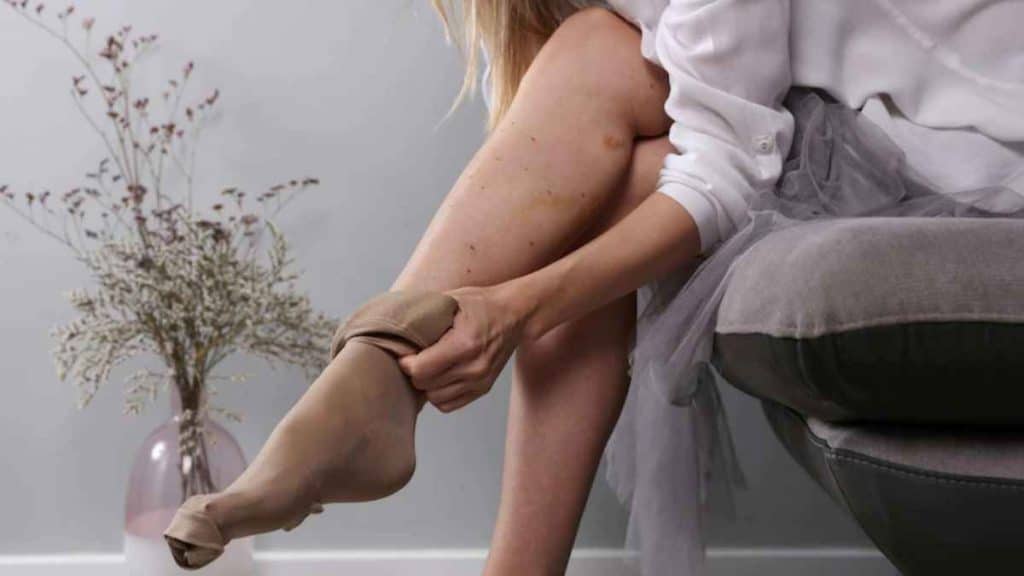Varicose veins, a common vascular disorder, are often viewed solely through the lens of physical health. However, the psychological implications of this condition are significant and frequently overlooked. This article aims to shed light on the often unspoken psychological impact of varicose veins and the stigma associated with them.
We will delve into the ways this condition affects individuals’ mental well-being, the importance of breaking the associated stigma, and the role of self-care and treatment in managing these psychological effects. By understanding the full scope of varicose veins’ impact, we can better support those affected and work towards more comprehensive and empathetic care.
Understanding Varicose Veins
Varicose veins are a common vascular condition characterized by enlarged, twisted veins that often appear blue or dark purple. They usually develop in the legs and are caused by malfunctioning valves in the veins, which allow blood to pool and cause the veins to stretch and twist.
While varicose veins can cause physical discomfort, such as aching, heaviness, and swelling in the legs, their impact extends beyond physical symptoms. The appearance of varicose veins can also have significant psychological effects, contributing to feelings of embarrassment, self-consciousness, and stigma.
The Psychological Impact of Varicose Veins
The psychological impact of varicose veins is often overlooked, but it is a significant aspect of the condition. Many people with varicose veins experience feelings of embarrassment or self-consciousness about the appearance of their legs. This can lead to avoidance of activities that expose the legs, such as swimming or wearing shorts or skirts. In severe cases, these feelings can lead to social isolation and impact overall quality of life.
Moreover, the stigma associated with varicose veins can exacerbate these psychological effects. Despite being a medical condition, varicose veins are often viewed as a cosmetic issue, which can lead to feelings of guilt or shame about seeking treatment. This stigma can also deter individuals from discussing their condition with healthcare providers or seeking appropriate care.
Breaking the Stigma
Breaking the stigma associated with varicose veins is a crucial step in addressing the psychological impact of the condition. This involves increasing public awareness about varicose veins as a medical condition, not just a cosmetic issue. It also involves educating healthcare providers about the psychological impact of varicose veins to ensure that these issues are addressed in patient care.
Moreover, individuals with varicose veins can benefit from psychological support, such as counseling or support groups. These resources can provide a safe space to discuss feelings of embarrassment or self-consciousness and learn coping strategies.
Additionally, treatments for varicose veins, including conservative measures like compression stockings and more invasive procedures like sclerotherapy or laser treatment, can improve the appearance of varicose veins and help alleviate psychological distress.
The Role of Self-Care and Treatment
Self-care measures play a crucial role in managing both the physical and psychological symptoms of varicose veins. Regular exercise, maintaining a healthy weight, and elevating the legs can help reduce physical symptoms. Meanwhile, self-care practices like mindfulness, yoga, or other stress-reducing activities can help manage psychological symptoms.
Treatment for varicose veins can also have a significant impact on psychological well-being. Improving the appearance of the veins can boost self-esteem and reduce feelings of embarrassment or self-consciousness. Moreover, discussing treatment options with a healthcare provider can help individuals feel more in control of their condition, further reducing psychological distress.
It’s also worth mentioning the potential role of varicose veins supplements in managing this condition. While supplements should not replace a comprehensive treatment plan, they may support overall vein health when used under the guidance of a healthcare provider.
Conclusion
The psychological impact of varicose veins is a significant aspect of the condition that is often overlooked. However, by increasing awareness, breaking the stigma, and providing comprehensive care that addresses both the physical and psychological symptoms, we can improve the quality of life for individuals with varicose veins.

